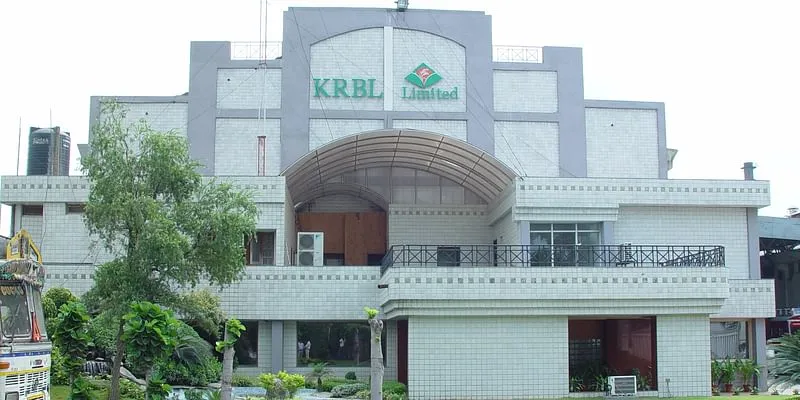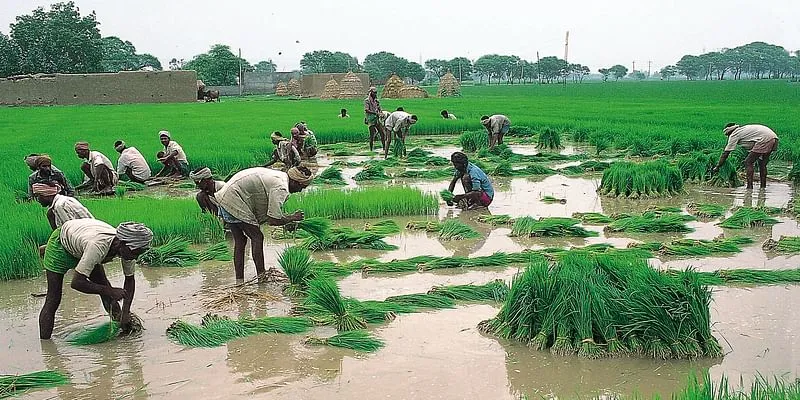Tracing the legacy of India’s oldest rice brand: The story of Rs 4,000 Cr KRBL
Here’s how Delhi-based KRBL became one of India’s largest rice millers and exporters with its flagship India Gate basmati rice.
As India strengthens its stance to acquire a geographical indication (GI) tag for basmati rice — traditionally grown in India — SMBStory caught up with one of the first rice brands to introduce the long slender-grain aromatic rice in a packaged form for Indian consumers.
In undivided India, two brothers — Khushi Ram and Behari Lal — wanted to bring quality essentials for customers. In 1889, they set up a small business dealing in rice, edible oil, and wheat in Lyallpur (now in Pakistan).
However, as the differences between India and Pakistan widened, the brothers called it quits and made their way to India. They began from scratch and formed a company called (an acronym of their names) in Lahori Gate, New Delhi.
Like many small entrepreneurs, they had to hustle, struggle, and work against the odds to sustain the company.
Over the next few years, KRBL would become the ‘Gateway to India’ through its ‘India Gate Basmati Rice’ brand — the company’s flagship product serving customers for over 100 years.
In an interaction with SMBStory, Priyanka Mittal, a fifth-generation entrepreneur and the Whole Time Director of KRBL Limited, discusses the operations of the family-owned business, which runs on the core ethics and vision of the founders.
She also talks about KRBL’s impact and how the brand has grown multifold, taking Indian basmati rice worldwide.
From Lahori Gate to the world
KRBL’s genesis was sourcing rice from farmers and selling it to retailers on a commission basis.
Priyanka says since inception, the company has strived hard to remove intermediaries to benefit both the farmers and retailers. With this as a base, KRBL set a firm foot in the oldest spice and staple market of Delhi’s Lahori Gate.
In the 1980s, KRBL was one of the first to pack basmati rice for the Russian market after India became rice surplus.
As the demand for basmati rice grew — not just in India but in other countries — the founders decided to launch the brand globally. Thus, in 1993, the company introduced its flagship brand ‘India Gate’ in a packaged form.
To strengthen the production and meet the growing demands, in 1994, KRBL imported machines from Germany, paving the way towards automation and strengthening ‘Make in India’.
“We are a proud Indian brand and have been a frontrunner in promoting the ‘Make in India’ long before the Prime Minister’s clarion call,” Priyanka says.

KRBL Limited factory
At present, the small business from the pre-independence era stands as a roaring successful publicly-listed business, with revenue close to Rs 4,000 crore. It launched its IPO in 1998.
As per its annual report, KRBL reported Rs 3,991 crore in revenue in FY21.
Differentiating factor
In 2001, Priyanka joined the family business and was responsible for category expansion — in terms of product ranges and brand segregation.
Priyanka says, “The key definition we have practised is that KRBL must express itself always as the collective impact or lasting impression from all that is seen, heard, or experienced by customers. I started from the shop floor to understand the work structure and the market from the grassroots.”
From product diversification to building a vast network of 95,000 farmers and introducing 14 more brands under KRBL, Priyanka says when customers use KRBL products or engage with the brand, they will "get exactly what they want every time".
She adds, “This is the overarching fact on which we built all our brands, including our flagship India Gate basmati rice; this is our key differentiating factor from others in the market.”
At present, KRBL has a total of 15 brands, including Unity in India, Nur Jahan in the Middle East, and more.
With a dealer and distributor network of over 500, KRBL owns 35 percent of the Indian basmati rice market. It competes with the likes of Daawat (LT Foods) and Kohinoor in India.
KRBL has four plants in India, where it processes and packages a total of 195 metric tonnes of rice per hour.
Apart from rice, KRBL also offers health and nutrition products, including Indian quinoa, chia seeds, flax seeds, rice bran oil, etc., through its other brands.

KRBL's farm
The path ahead
India is a leading exporter of basmati rice. During 2020-21, the country exported 46,30,463.14 metric tonnes of basmati rice globally worth Rs 29,849.89 crore (or $4,018.71 million). KRBL is one of the largest companies contributing to exports.
The company plans to strengthen its sustainable farming practices as well, and Priyanka says the idea is "to give the best of India to the world".
She adds that KRBL is the gateway of India to 90 countries across the globe, and the brand aims to deepen its product range and promote millets and regional rice of India in the future.
Edited by Suman Singh









